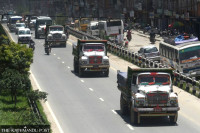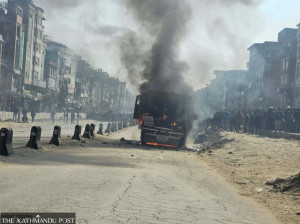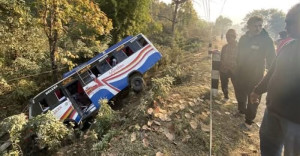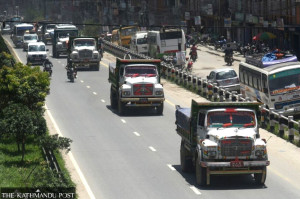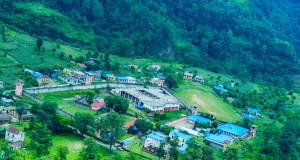Bagmati Province
19 years since the peace accord, no justice for conflict victims
Insurgency widows and victims complain of state neglect and speak out on empty promises.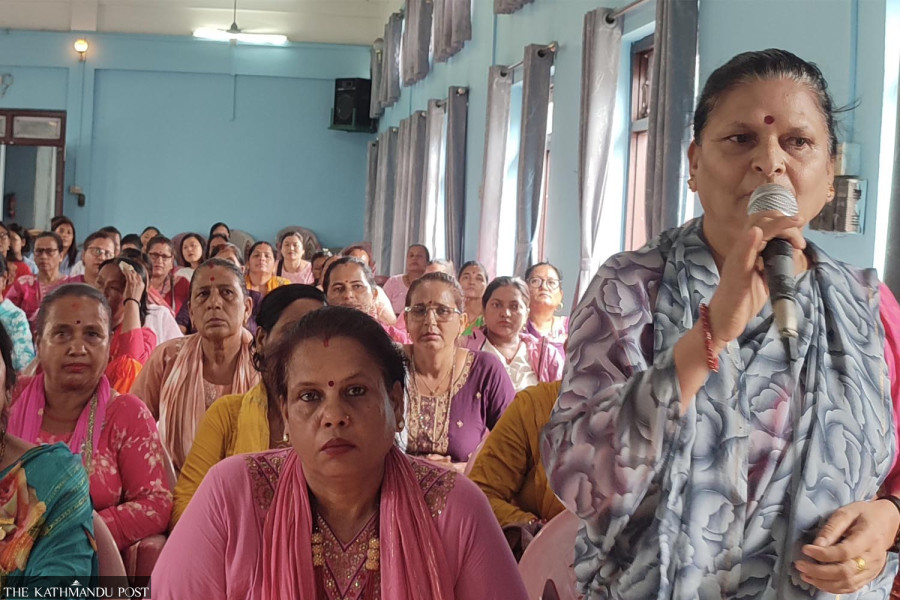
Ramesh Kumar Paudel
Lalkumari Silwal was only 25 when her husband, a policeman, was killed during the 1996-2006 Maoist insurgency. Despite being widowed at a young age, she raised her two children with courage and dignity. But what kept her going, she recalls, were her husband’s final words before his death: “Keep your own surname. Raise our children equally—never differentiate between a son and a daughter.”
Two decades on, her husband’s surname—Thapaliya—remains absent from her identity. She raised her children as Silwals, instilling in them equality and resilience. But justice, she says, has never arrived. “So much has changed—the war ended, governments changed, former enemies now share power—but we, the ones who lost everything, are still waiting for justice,” she said at an interaction of conflict-affected women in Bharatpur, organised by the Adarsha Nari Bikas Kendra.
More than 18 years after the insurgency ended with the Comprehensive Peace Accord in November 2006, thousands of conflict-affected women say they remain unheard and forgotten. Despite repeated promises by political parties and leaders, justice, reparation, and recognition has remained out of reach.
Silwal believes that families who lost loved ones during the conflict deserve dignity and space to live with pride. “Many commissions and committees have come and gone. They ask for complaints, we file them. But what’s the point? What proof do we have to believe that justice will come?” she asked. Silwal says the credibility of these commissions depends not on laws, but on the people in charge. “If these commissions are filled with people who share our pain—not politicians eyeing quotas—maybe we could still hope.”
Sapana Rana, a resident of Kalika Municipality, has a similar ordeal. Her voice trembled as she recalled being tortured by the then Royal Nepal Army. “Even now, my heart skips a beat remembering those days. It's been 20 years since the peace process began—where is our justice?” she questioned.
Rana lost one leg during the conflict. She now uses a prosthetic that must be replaced every six months. She spent five years in jail and was forcibly disappeared for a year. “The blood spilled in the name of this constitution—yet the voices of victims like us are completely ignored,” she said.
Rana criticised the government for evading its responsibilities around justice, rehabilitation, and medical treatment. “We need free physical and psychological healthcare. And legal services should also be free for conflict victims,” she added. She further demanded a dignified identity card system for victims, ensuring recognition and access to services. “And, please do not bury heinous crimes like rape under political settlements. That is not justice.”
Tirtha Maya Amgain of Ratnanagar Municipality expressed similar frustrations. “We’ve filled out so many forms for so many commissions and committees. But nothing has come of it. Hope turns into disappointment,” she lamented. Amgain stressed that budget allocations for victims should be considered a duty of the state, not an act of charity. “People see us looking healthy but they don’t know we can no longer work to feed ourselves. Some municipalities offer small budgets for self-employment, but they treat us like beggars, not sovereign citizens with rights.”
From Rapti Municipality, Danda Maya Roka Kandel shared a painful response she received when asking local representatives about funding for conflict victims. “They said if they allocate a budget for us, they’ll end up on a blacklist,” she said.
The insurgency-era victims are from different backgrounds but they share common ordeal. The participants at Monday’s interaction argued that female conflict victims have to suffer more. Ruku Adhikari, president of the Single Women’s Group for Human Rights Group in Chitwan, stressed the need for women’s economic empowerment. “Only when women are financially strong can they participate in leadership and policymaking. The government must support this through favourable laws and policies,” she said.
Two decades after Nepal’s armed conflict ended, women who lost their loved ones, bodies, and peace of mind continue to live in the shadows of justice. While politicians forge alliances and rewrite history, these women are still telling the same stories—of loss, of resilience, and of a nation that has yet to deliver on its promise of peace.
Parbati Khadka, president of the District Network of Conflict-affected Women, said that peace without justice is not real peace. “The war may be over but our fight for justice isn’t. We’re not just victims anymore—we’ve begun to speak up to get justice,” she said.




 23.27°C Kathmandu
23.27°C Kathmandu1.jpg)
